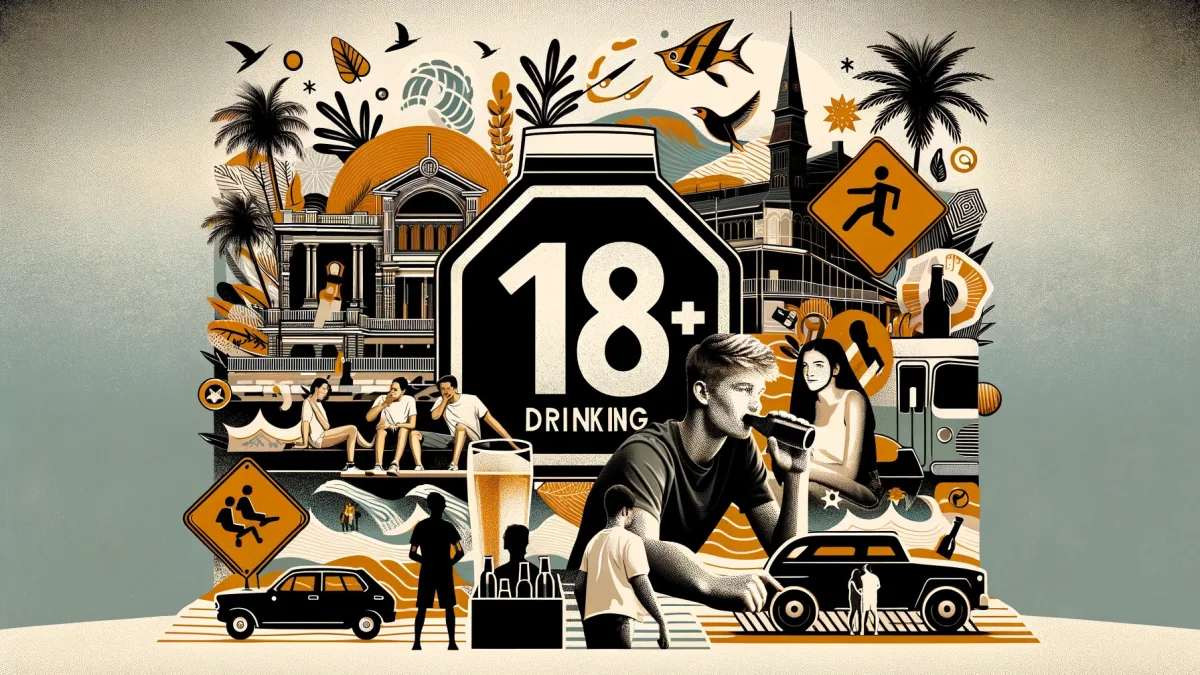Australia is renowned for its vibrant culture, stunning landscapes, and yes, a hearty appreciation for a good brew. But when it comes to enjoying an alcoholic beverage, how young is too young? Let’s uncork the details on the legal drinking age in Australia, navigating through the laws that govern who can cheers with a beer, and where.
The Legal Age: A Nationwide Consensus
Across the Australian continent, from the sun-kissed beaches of Queensland to the bustling streets of Melbourne, the magic number is 18. That’s right, you must be 18 years of age or older to legally purchase and consume alcohol in Australia. This uniform age limit applies to all states and territories, providing a consistent legal framework across the country.
The Law Behind the Age
The regulation of alcohol consumption in Australia is primarily the responsibility of state and territory governments. Despite this decentralized approach, the consensus on 18 as the legal drinking age stands firm, embedded in various pieces of legislation like the Liquor Act in New South Wales and the Liquor Control Reform Act in Victoria, among others.
Purchasing, Possessing, and Partaking
Being 18 not only grants you the legal right to buy alcohol from licensed premises such as pubs, clubs, and bottle shops but also to possess and consume it in public places. However, the specifics can vary slightly by location due to additional state or territory regulations, so it’s always wise to check the local laws.
Why 18? The Rationale Explained
The decision to set the legal drinking age at 18 years aligns with many other countries and is supported by several key considerations:
- Adulthood and Responsibility: In Australia, 18 is generally recognized as the age of adulthood, when individuals gain the right to vote, marry without parental consent, and sign contracts. It’s seen as the age when one can responsibly make decisions about alcohol consumption.
- Public Health Concerns: Research on brain development suggests that alcohol consumption can have detrimental effects on individuals under 18. Setting the legal age at 18 aims to protect younger Australians from these potential harms.
- Social and Cultural Factors: Balancing cultural norms around alcohol with the need to promote responsible drinking habits and reduce alcohol-related harm is a continual challenge. The legal age aims to reflect societal values and expectations.
Exceptions to the Rule
While the legal drinking age is clear-cut, there are nuances worth noting:
- Private Premises: In some states and territories, minors can consume alcohol under parental supervision in private homes.
- Educational Contexts: Culinary students under 18 may be allowed to taste (but not consume) alcohol as part of their education, under specific conditions.
The Debate Continues
Like many countries, Australia periodically revisits the conversation about the legal drinking age. Advocates for raising the age cite public health data and aim to align with countries like the United States, where the legal age is 21. Meanwhile, opponents argue that such a change could infringe on personal freedoms and fail to address the root causes of underage drinking.
Staying Informed and Safe
For young Australians and visitors alike, understanding and respecting the legal drinking age is crucial. It’s not just about adhering to the law; it’s about making informed choices that prioritize health, safety, and community well-being.
Conclusion: A Toast to Clarity and Responsibility
Navigating Australia’s alcohol laws reveals a blend of legal consistency, cultural considerations, and ongoing public health dialogue. As we’ve seen, the legal drinking age of 18 serves as a cornerstone of Australia’s approach to alcohol regulation, aiming to balance the rights and responsibilities of young adults in a society that values both freedom and safety.
Whether you’re raising a glass to celebrate a milestone or simply enjoying a casual drink with friends, understanding the legal and social implications of alcohol consumption ensures that everyone can partake in Australia’s rich drinking culture responsibly and legally.









Leave a Reply